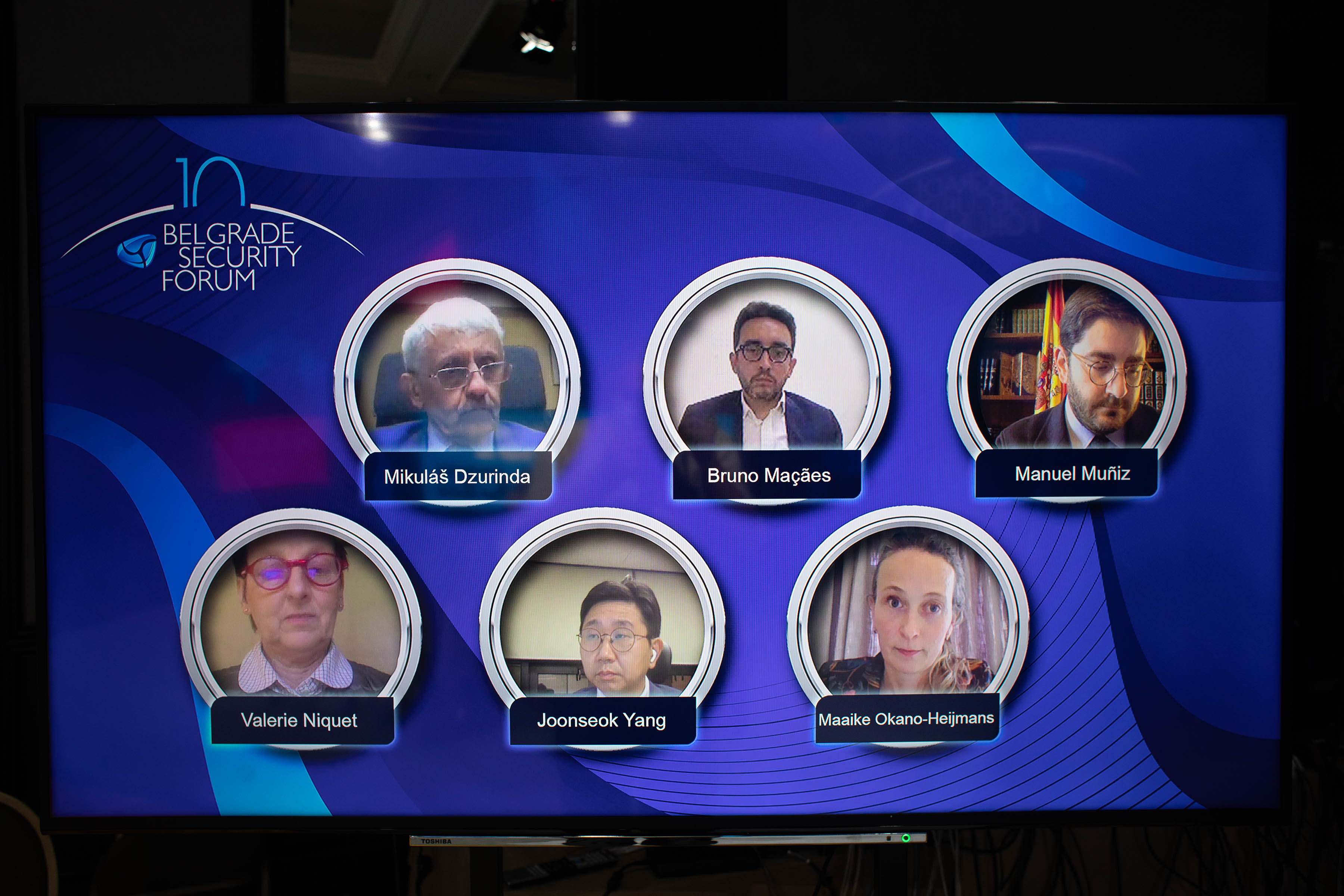COVID-19 Challenging International Architecture, China Riding the Wave
The fourth day of the 10th Belgrade Security Forum continued with a panel on the influence of the pandemic COVID-19 on the international order and power dynamics. It rounded up speakers who gave their opinions from global, but also European and Asian perspective who nevertheless agreed that the pandemic will accelerate already existing trends in the world order and international architecture, such as growing social fracturing, regression of freedom and rights of minorities. On the other hand, the pandemic was also seen as an opportunity for reform, especially for the EU to take a global role, as well as for China to take advantage of the pandemic.
Mikuláš Dzurinda, President of Wilfried Martens Centre for European Studies, emphasized that the pandemic brought changes, but on the other side there are things which will remain unchanged. What is new, Mr. Dzurinda considers, is the knowledge that we are all vulnerable, the fact that we recognize a fundamental shift on our label market and the awareness that the West needs to decrease the independence on China. Mr. Dzurinda also commented on how the European Union could become a real global leader.
To became really a strong and a reliable global player, the EU need to change the decision making, especially in areas which by nature belong to the communitarian or federal level, especially when it comes to the foreign policy, security, defense, certain elements of illegal immigration and question on the budget.
Bruno Maçães, Senior Fellow of Hudson Institute and the former Minister for European Affairs of Portugal, said that the pandemic was going to change how our economics worked and that during the pandemic the intensity of the global competition became apparent, but also vulnerabilities of the way the global economy was organized, namely the fact that supply chains could be disrupted or even stop working.
Mr. Maçães added that China is now more interested in soft power than before.
We see that China certainly getting ready to take advantage of COVID crises to expand its economic position in many places; every week we see evidence of that in the news.
In answering the title question, Manuel Muñiz, Secretary of State for Global Spain, Ministry of Foreign Affairs, European Union and Cooperation, pointed out that it would definitely accelerate history and highlighted two main ways of impacts – the economic one, bearing in mind employment, education and social fracturing; and the disinformation front in the sense of lack of institutional trust and distrust in political, economic and cultural elites.
Valerie Niquet, Head of the Asia department at FRS, agreed that the pandemic will accelerate history and discussed China during the pandemic.
The pandemic influenced China to develop a more aggressive and assertive foreign policy, as well as stronger control over Hong Kong and different activities in the South-China Sea.
Ms. Niquet added the increasing role of China in controlling multilateral organizations and emphasized that Chinese capabilities in that way are not without limit.
Joonseok Yang, Assistant Professor at Political Science and Diplomacy Department, Sungkyunkwan University, concluded that the COVID crises was the one which affected all the people and all the countries and that the international community responded to the crises with only national level responses. Mr. Yang emphasized the need for more cooperation and especially commented on the role and response to crises of the US and that on the leading role of the US will influence a lot the result of the 2020 Presidential Elections.








